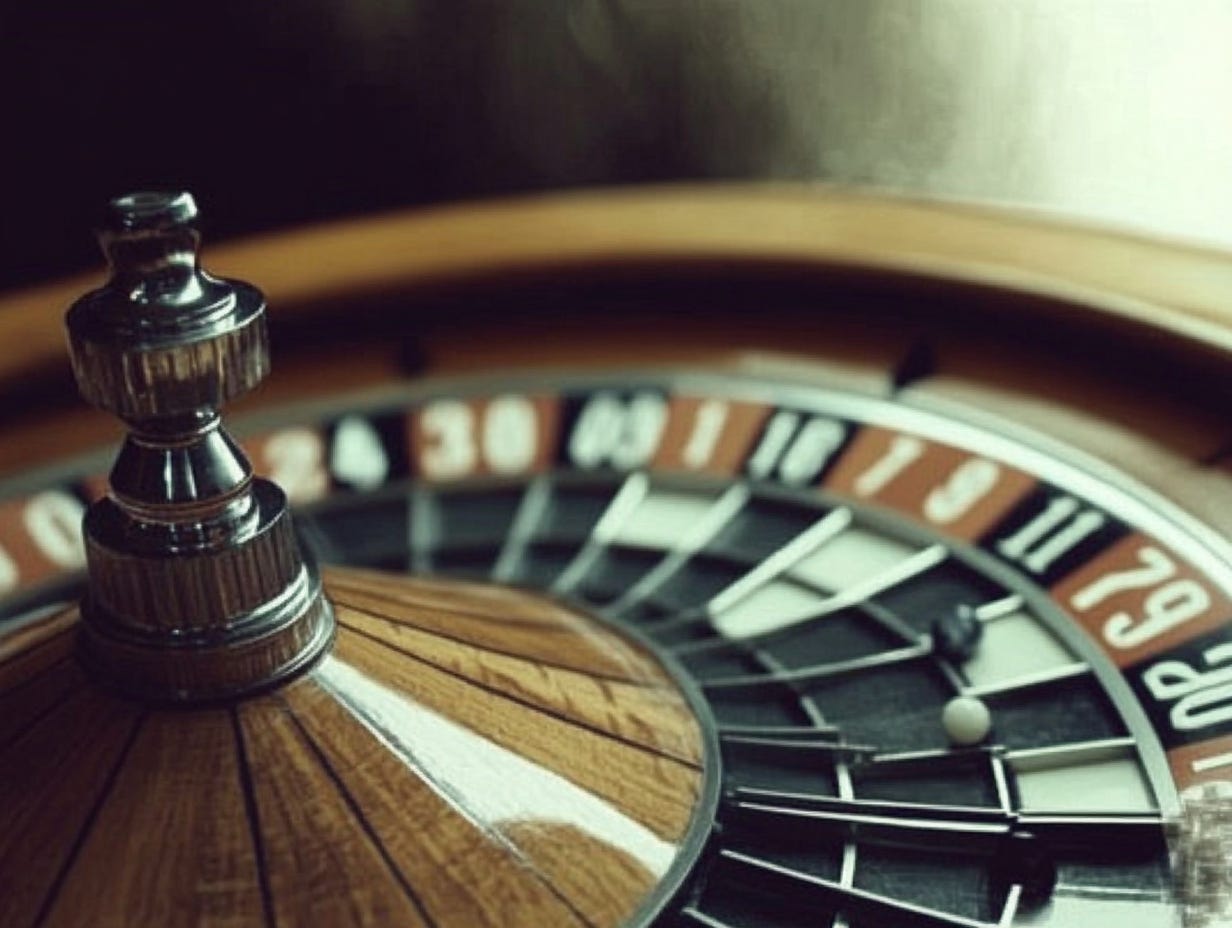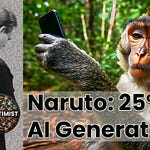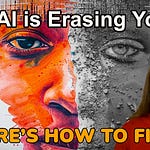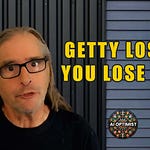What? Jackson Pollock Might Help Us Understand AI Copyright?
I see Jackson Pollock's name in the US Copyright Office's announcement about AI this week, and I'm thinking - how did a 1950s painter who threw paint at canvases end up in a debate about artificial intelligence?
From the US Copyright Office
Someone tried to connect Pollock to AI in a way that made me stop and think: What if Pollock's paint splashes were like our prompts to AI?
We throw words at it, and something unexpected comes back - something we didn't necessarily visualize, and it's still an act of creativity.
The Copyright Office didn't buy it. They looked at Pollock comparison and said,
"Hey, there was a human holding that paintbrush, choosing colors, making decisions about where to throw the paint."
To them, AI is more like a "digital roulette wheel" (their words, not mine) that randomly spits out content based on prompts.
The New York Times Might Just Prove Them Wrong
The Copyright Office gives zero respect to prompts - and I mean zero. They're basically saying prompts are like throwing spaghetti at the wall to see what sticks.
But The New York Times lawsuit against OpenAI might flip this on its head.
"If the New York Times really got their close to original content out... that actually is the first time we've connected this specific action to the specific prompt.
Every prompt shaped an output, just like every Pollock throw of paint created the canvas."
If The Times prove they used specific prompts to get their exact content back from ChatGPT, doesn't that show there's more to prompting than random chance?
Three Acts of the US Copyright Drama
We're in the middle of a three-part series from the Copyright Office:
1. They've covered Part1. Digital Replicas (think deepfakes) in July 2024
2. Now they're tackling AI authorship: January 2025
3. Next year's the big one - what happens when AI trains on copyrighted content?
What They Actually Said
Here's where they got something right: you can use AI in your creative work, you just can't let it do all the heavy lifting.
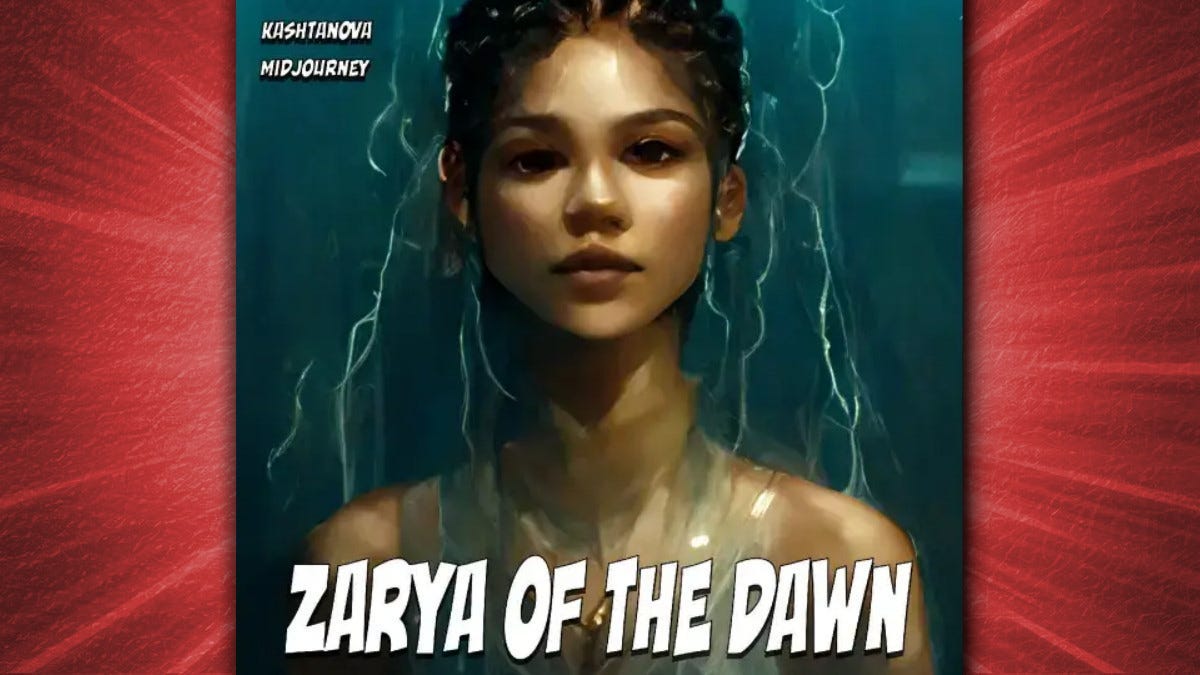
Take "Zarya of the Dawn" - this cool comic book where the images came from Midjourney, but a human did the writing and put it all together.
The whole book? Copyrightable. The individual AI images? Not so much.
Two Old Cases That Suddenly Matter Again
The Copyright Office pulled out some fascinating historical cases that suddenly feel super relevant:
In 1989 a homeless advocacy group commissioned a sculpture and then argued they owned it because they gave the idea? (CCNV vs. Reid) Sound familiar? It's basically the prompt versus output debate we're having now.
Or the map reproduction case (Andrein) that helped us figure out the difference between "creative guidance" and "just following instructions"? These old cases are helping us navigate this new AI territory.
Maybe AI is Human Intelligence
I think we're looking at this all wrong. When we call it "artificial" intelligence, we're missing something huge. Here's my take:
"Without that data, none of this works.
Without the code created by humans, none of this works.
Without the person prompting or talking... it's all just language communication with a database of incredible collective intelligence."
Maybe our real problem isn't about respecting AI's copyright - it's about recognizing intelligence that goes beyond a single human author.
We're trying to force 2024 technology into 1787 rules, and surprise, surprise, it's not fitting very well.
The Copyright Office got one thing absolutely right - they're protecting AI-assisted human creativity. But they're missing the bigger picture.
AI isn't just some random number generator spinning out content like a Vegas slot machine. It's human intelligence evolving into something new.
If AI is built on human knowledge, trained on human creativity, and guided by human prompts, maybe we need to stop thinking about it as "artificial" at all.
Maybe it's time to recognize it; our collective intelligence taking on a new form.
Next week, we're going to explore a new framework for protecting AI-assisted creativity - one that doesn't try to squeeze it into 18th-century rules or dismiss it as luck.
What we're really talking about isn't artificial intelligence at all - it's human intelligence evolving.
And that's something worth protecting….
RESOURCES
US copyright office
Part 2 (out January 2025): Copyrightability
Part 3 to come
OpenAI claims New York Times' prompting strategy violates its terms of service
New York Times sues Microsoft, ChatGPT maker OpenAI over copyright infringement by Ryan Browne
OpenAI says New York Times 'hacked' ChatGPT to build copyright lawsuit
Community for Creative Non-Violence v. Reid, 490 U.S. 730 (1989)





